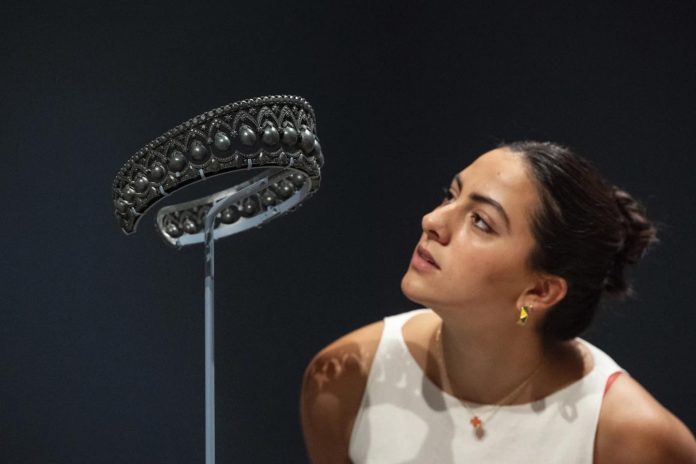London, Sept 25: Glasgow-born artist Jasleen Kaur, whose artwork inspired by her life growing up in Scotland’s Sikh community was shortlisted for the prestigious Turner Prize, on Wednesday opened to the public as part of a major exhibition at Tate Britain in London.
London-based Kaur, in her 30s, has created sculptures from gathered and remade objects, each of which are animated through an immersive sound and musical composition interspersed with the artist’s own renditions.
Back in April, Kaur was shortlisted alongside three other fellow UK artists – Pio Abad of Filipino heritage, Black British Arts Movement founding member Claudette Johnson and Delaine Le Bas of Romani heritage – for the prize which will award the winner GBP 25,000 (USD 33,420 approx), with GBP 10,000 (USD 13,370 approx) each for the nominated artists.
While the winner will be announced at an awards ceremony at Tate Britain on December 3, the exhibition of their works will run at the museum on the banks of the River Thames until mid-February 2025.
“Jasleen studied jewellery making and then applied art, so she’s very interested in making objects in combinations around the stories that they can tell,” said Linsey Young, co-curator of the exhibition at Tate Britain.
“Her room is made up of installations that are looking at anti-colonialist discussion, anti-imperialist struggles and really assessing those against her lived experience, her family and upbringing. It includes a Ford car and she talks about it as being one of her dad’s ambitions and migrant desires; when he moved from India to Glasgow, having a car like that was an aspiration.
“It’s covered in a crocheted cotton doily (ornamental mat), so a kind of domestic object made very, very large where the cotton material relates to histories of migration and labour – of Indian people coming to the north of England after the war and working in cotton mills,” she said.
Other items making up Kaur’s display include family photos, a harmonium, a lush carpet inviting visitors to sit and kinetic worship bells, all orchestrated to convey the artist’s upbringing in Scotland.
A central feature is music entitled ‘Yearnings 2023′, an improvised vocal soundscape of the artist’s voice layered over snippets of pop songs playing from the speakers of ‘Sociomobile 2023′ – the vintage Ford Escort – filling the space with Kaur’s musical memory.
In an accompanying film at the exhibition, the artist reflects upon the Sikh concept of Miri Piri, which talks of finding a balance between the political and spiritual and wants to explore the different ways for humanity to live together through her art.
The Turner Prize jury praised her “evocative combination of sound and sculpture to address specifics of family memory and community struggle”.
“This year’s artists each make vibrant and varied work that reflects not just their personal memories and familial stories, but also speaks to wider questions of identity, myth, belonging and community. Through their varied practices, they offer us a lens through which to reconsider both our tangled histories and our shared futures,” said Alex Farquharson, Director of Tate Britain and chair of the Turner Prize jury.
One of the world’s best-known prizes for the visual arts, the Turner Prize aims to promote public debate around new developments in contemporary British art. Established in 1984, the prize is named after the radical painter JMW Turner (1775-1851) and is awarded each year to a British artist for an outstanding exhibition or other presentation of their work, with British Indian sculptor Anish Kapoor among its past winners.
The year 2024 marks the prize’s 40th anniversary, as well as its return to Tate Britain for the first time in six years. (PTI)
Home International Jasleen Kaur’s Turner Prize shortlisted exhibition goes on display at Tate Britain


